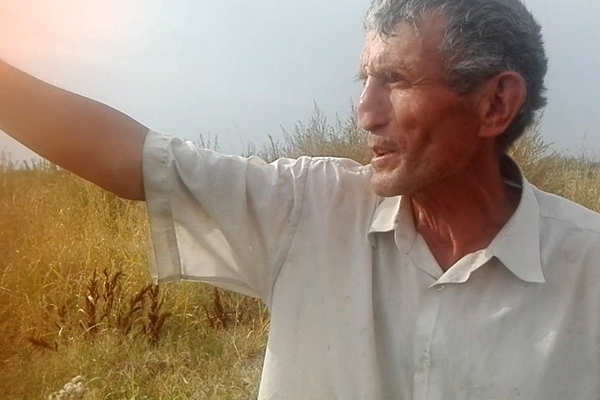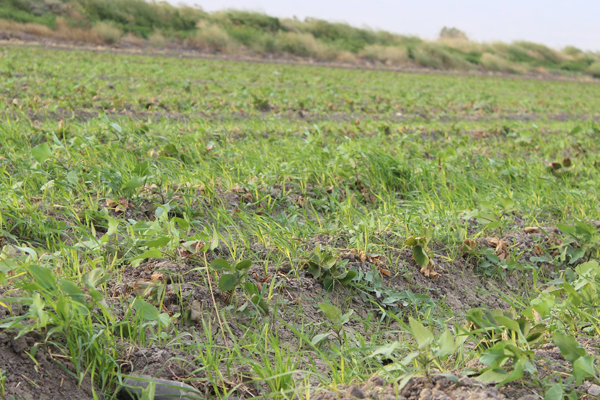Vahan Movsisyan, a native of the village of Sardarapat in the Armenian province of Armavir, recently invited Yerevan journalists to his dried-up produce gardens. He claims that he gets no irrigation water and does not expect to receive even 3 tons of grapes from a garden which is supposed to give at least 10 tons of harvest.
“I took out a loan of 3 500 dollars, paid off another loan and began cultivating this garden. It’s already been three years; I was supposed to get my first harvest this year, but I haven’t been getting any water. I’m phoning the water utility, the guy tell me to appeal to whomever I wish,” Movsisyan said.
The problem of water shortage, according to the farmer, became particularly pressing over the last month and affected not only the grapes but also his tomato fields. “I agreed that I would hand over the grapes to the [Ararat] Cognac Factory and MAP [winery]. I don’t expect I’ll have enough harvest.”
Movsisyan is not the only farmer who has been affected by the water issue; the fields on the way to Armavir have also dried up considerably. One of the residents of the village of Gyughakert showed showed the reporters his strawberry field. “We planted seedlings of strawberries, 80 percent of which has dried up. We will have to plant again, but we need water for them to grow. Replanting entails new expenses. What’s more, it will soon turn colder, and the harvest will not manage to ripen up,” the farmer said.
The Gyughakert villagers do not trust the regional administration’s claims that the water shut-off was due to a man drowning in the reservoir. “They have been saying this for three months. No, there’s no water because they have given it all to fish farms,” a farmer, who wished to remain anonymous, insisted.
Produce traders on the Armavir highway told reporters that a month ago they, along with farmers from Gyughakert, Mrgashat and Mayisyan villages, had blocked the road to protest the unfair water distribution. The water was turned on after the protest, but only for a few days.
 Epress.am News from Armenia
Epress.am News from Armenia

